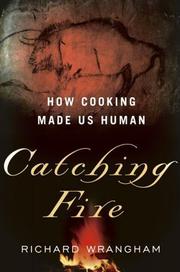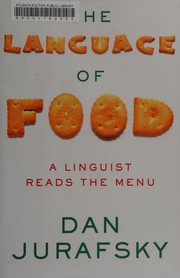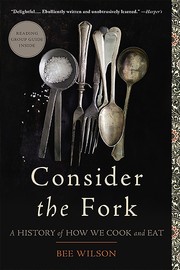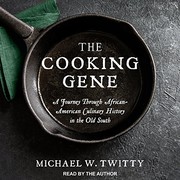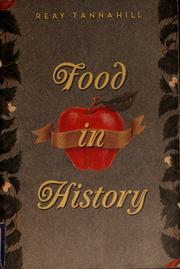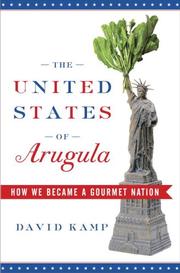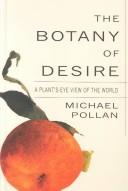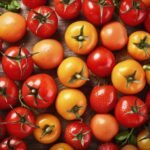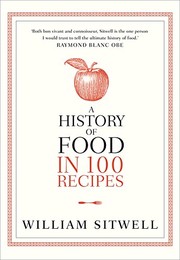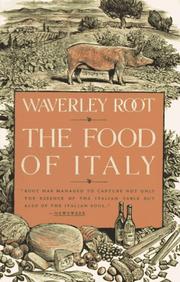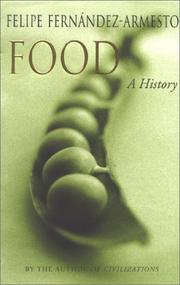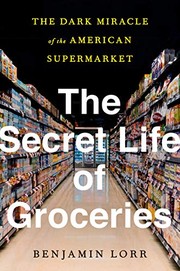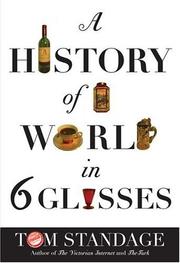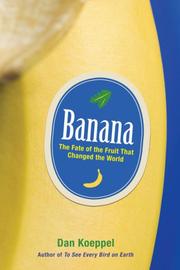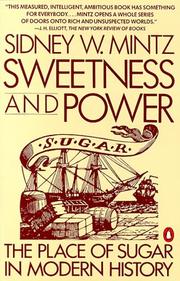Looking to delve into the fascinating world of food history? There’s no better way to satisfy your literary appetite than by exploring the 20 best books about the history of food. From ancient culinary traditions to modern food culture, these books offer a delectable journey through the evolution of human consumption. Whether you’re a food enthusiast, a history buff, or simply curious about the origins of your favorite dishes, these books on history of food will leave you hungry for more knowledge.
Contents
- 1 20 Best History Of Food Books
- 2 Salt: A World History
- 3 The Omnivore’s Dilemma: A Natural History of Four Meals
- 4 Catching Fire: How Cooking Made Us Human
- 5 The Language of Food: A Linguist Reads the Menu
- 6 Consider the Fork: A History of How We Cook and Eat
- 7 The Cooking Gene: A Journey Through African American Culinary History in the Old South
- 8 Food in History
- 9 The United States of Arugula: How We Became a Gourmet Nation
- 10 The Botany of Desire: A Plant’s-Eye View of the World
- 11 Food Politics: How the Food Industry Influences Nutrition and Health
- 12 A History of Food in 100 Recipes
- 13 The Food of Italy
- 14 Food: A History
- 15 The Secret Life of Groceries: The Dark Miracle of the American Supermarket
- 16 Guns, Germs, and Steel: The Fates of Human Societies
- 17 A History of the World in 6 Glasses
- 18 Banana: The Fate of the Fruit That Changed the World
- 19 Sweetness and Power: The Place of Sugar in Modern History
- 20 Food: A Cultural Culinary History
- 21 The Food Explorer: The True Adventures of the Globe-Trotting Botanist Who Transformed What America Eats
- 22 Final Thoughts on Best History Of Food Books
- 23
20 Best History Of Food Books
Salt: A World History
by Mark Kurlansky
Salt: A World History by Mark Kurlansky is a fascinating exploration of the impact of salt on civilization throughout the ages. This captivating book on the history of food takes readers on a journey from ancient times to the present, revealing how salt has influenced economies, wars, and cultural development around the globe.
Kurlansky delves into the significance of salt in various societies, from its use as currency in ancient Rome to its role in preserving food before the invention of refrigeration. The book about the history of food also discusses the salt industry’s impact on trade routes and the development of cities, making it a compelling read for anyone interested in the intersection of food, culture, and commerce.
With vivid storytelling and meticulous research, Kurlansky brings to life the importance of this humble mineral, offering a fresh perspective on the history of food and its profound influence on human civilization.
The Omnivore’s Dilemma: A Natural History of Four Meals
by Michael Pollan
The Omnivore’s Dilemma is a captivating book on the history of food, written by Michael Pollan. In this insightful and thought-provoking work, Pollan explores the complex and often perplexing choices that humans face when it comes to what to eat. He delves into the natural history of four meals, examining the origins and implications of each. From the industrialized food system to the organic and sustainable movement, Pollan provides a comprehensive look at the evolution of our food sources and the impact they have on our health and the environment.
Through engaging storytelling and meticulous research, Pollan takes readers on a journey of discovery, shedding light on the cultural, economic, and ecological factors that shape our food choices. With a keen eye for detail and a deep understanding of the subject matter, Pollan offers a compelling narrative that challenges readers to question their own food habits and consider the broader implications of their choices. Whether you’re a food enthusiast or simply curious about the history of food, The Omnivore’s Dilemma is a must-read that will leave you with a newfound appreciation for the meals on your plate.
Catching Fire: How Cooking Made Us Human
by Richard Wrangham
Catching Fire: How Cooking Made Us Human by Richard Wrangham is a fascinating exploration of the book about history of food. Wrangham argues that the discovery of fire and the ability to cook food was a crucial turning point in human evolution. He delves into the history of food book and presents evidence to support the idea that our ancestors’ use of fire for cooking transformed not only the way we eat, but also our anatomy, physiology, and even our social structure.
With a blend of anthropology, biology, and archaeology, Wrangham brings a fresh perspective to the study of human evolution, offering compelling insights into the impact of cooking on our species. He presents a compelling case for the idea that cooking played a pivotal role in the development of human society, making this book on history of food a must-read for anyone interested in understanding the origins of our culinary habits and their impact on our species’ development.
The Language of Food: A Linguist Reads the Menu
by Dan Jurafsky
The Language of Food: A Linguist Reads the Menu by Dan Jurafsky is a captivating exploration of the history of food through the lens of linguistics. Jurafsky delves into the fascinating origins and evolution of food terms, revealing the cultural, social, and historical influences that have shaped the way we talk about and experience food. From the etymology of menu items to the language of restaurant reviews, Jurafsky uncovers the rich and complex tapestry of food-related language.
Through engaging anecdotes and meticulous research, Jurafsky offers readers a fresh perspective on the history of food, highlighting the connections between language and culinary traditions. Whether you’re a language enthusiast, a food lover, or simply curious about the intersection of these two realms, The Language of Food is sure to satisfy your appetite for knowledge. This history of food book is a delightful and informative read that will leave you with a newfound appreciation for the intricate language of food.
Consider the Fork: A History of How We Cook and Eat
by Bee Wilson
Consider the Fork: A History of How We Cook and Eat by Bee Wilson is a captivating exploration of the evolution of cooking and eating habits throughout the ages. This book on the history of food delves into the fascinating stories behind the tools and techniques that have shaped the way we prepare and consume our meals.
Wilson takes readers on a journey through time, uncovering the origins of kitchen utensils and the cultural significance of different cooking methods. From the invention of the knife to the development of modern appliances, she provides a rich tapestry of historical anecdotes that paint a vivid picture of how food has been prepared and enjoyed by different societies.
With a keen eye for detail and a passion for culinary history, Wilson’s book about the history of food is a must-read for anyone interested in the art of cooking and the rituals of dining. Whether you’re a food enthusiast or a history buff, Consider the Fork offers a thought-provoking and mouth-watering look at the ways in which food has shaped human civilization.
The Cooking Gene: A Journey Through African American Culinary History in the Old South
by Michael W. Twitty
The Cooking Gene: A Journey Through African American Culinary History in the Old South by Michael W. Twitty is a captivating exploration of the intersection of food, culture, and heritage. This book on the history of food takes readers on a profound and personal journey as Twitty delves into the rich and complex culinary traditions of African American communities in the Southern United States.
Twitty skillfully weaves together genealogy, historical research, and personal anecdotes to paint a vivid picture of the impact of African American foodways on American cuisine. He examines the roots of soul food, the influence of slavery on Southern cooking, and the resilience and creativity of African American cooks in the face of adversity.
With a unique blend of storytelling and scholarship, The Cooking Gene offers a thought-provoking and illuminating perspective on the history of food. It is a must-read for anyone interested in the history of food, the cultural significance of cuisine, and the enduring legacy of African American culinary traditions.
Food in History
by Reay Tannahill
Food in History, written by Reay Tannahill, is a fascinating exploration of the history of food and its impact on human civilization. Tannahill takes readers on a journey through time, from the earliest hunter-gatherer societies to the modern industrialized world, tracing the evolution of food habits, customs, and culinary traditions. The book delves into the social, cultural, and economic factors that have shaped the way we produce, prepare, and consume food, offering valuable insights into the role of food in shaping human history.
Through a rich tapestry of anecdotes, historical accounts, and scholarly research, Tannahill paints a vivid picture of how food has influenced everything from trade and exploration to warfare and cultural exchange. Readers will gain a deeper understanding of the profound influence of food on human societies, as well as an appreciation for the complex web of connections between what we eat and the world around us.
Whether you’re a food enthusiast, a history buff, or simply curious about the history of food book, Food in History is sure to captivate and enlighten with its engaging narrative and wealth of intriguing information.
The United States of Arugula: How We Became a Gourmet Nation
by David Kamp
The United States of Arugula: How We Became a Gourmet Nation by David Kamp is a captivating book on the evolution of American cuisine. This book on the history of food takes readers on a journey through the culinary landscape of the United States, exploring how the nation transformed from a land of meatloaf and Jell-O to a gourmet paradise.
With meticulous research and engaging storytelling, Kamp delves into the cultural, social, and political factors that shaped American food culture. He traces the influence of figures such as Julia Child, James Beard, and Alice Waters, and examines the rise of organic and local food movements.
Through vibrant anecdotes and insightful analysis, Kamp paints a vivid picture of how American palates have evolved over time. Whether you’re a food enthusiast or a history buff, this book about the history of food offers a fascinating exploration of the intersection of food, identity, and society in the United States.
The Botany of Desire: A Plant’s-Eye View of the World
by Michael Pollan
The Botany of Desire: A Plant’s-Eye View of the World by Michael Pollan is a captivating exploration of the co-evolutionary relationship between humans and plants. In this thought-provoking book, Pollan delves into the history of food, examining the ways in which four familiar plants—apples, tulips, marijuana, and potatoes—have shaped human desires and behaviors. Through a combination of history, science, and personal anecdotes, Pollan offers a fresh perspective on the history of food and our complex relationship with the plant world.
By examining the ways in which these plants have influenced human societies and cultures, Pollan challenges readers to consider the idea that plants may have exerted just as much influence on us as we have on them. With its engaging storytelling and thought-provoking insights, The Botany of Desire is a must-read for anyone interested in the history of food or the intricate connections between humans and the natural world.
Food Politics: How the Food Industry Influences Nutrition and Health
by Marion Nestle
Food Politics: How the Food Industry Influences Nutrition and Health by Marion Nestle is a captivating book on the history of food that delves into the intricate relationship between the food industry, nutrition, and public health. Nestle, a renowned nutritionist, explores the ways in which food companies, agricultural policies, and government regulations shape the food we eat and ultimately impact our well-being.
Nestle’s insightful analysis exposes the complex web of influences that determine what ends up on our plates, from marketing strategies and food labeling to the lobbying power of big corporations. She uncovers the ways in which these factors can compromise the public’s access to healthy, nutritious options, and ultimately contribute to the rise of diet-related diseases.
With meticulous research and a critical eye, Nestle presents a thought-provoking narrative that sheds light on the history of food and its connection to broader social and political issues. Food Politics is a must-read for anyone interested in understanding the intricate forces at play in the modern food system.
A History of Food in 100 Recipes
by William Sitwell
A History of Food in 100 Recipes by William Sitwell is an intriguing exploration of culinary evolution. This captivating book delves into the fascinating story of food through a collection of 100 recipes, each with its own unique tale to tell. From ancient dishes to modern delicacies, Sitwell takes readers on a journey through time, uncovering the history of food in a way that is both informative and entertaining.
Through these carefully selected recipes, readers gain insight into the cultural, social, and economic influences that have shaped our culinary traditions. Sitwell’s engaging storytelling and in-depth research make this book about history of food a must-read for food enthusiasts and history buffs alike. Whether you’re curious about the origins of your favorite dish or interested in the evolution of global cuisine, A History of Food in 100 Recipes offers a delectable exploration of the history of food that is sure to satisfy your intellectual appetite.
The Food of Italy
by Waverley Root
The Food of Italy by Waverley Root is a captivating book on the history of food in Italy. Root takes readers on a delightful culinary journey through the rich and diverse gastronomic traditions of Italy, exploring the origins and evolution of its iconic dishes and ingredients. With vivid descriptions and insightful anecdotes, Root offers a comprehensive exploration of the history of food in Italy, from the ancient Roman era to the modern day.
Readers will discover the cultural significance of Italian cuisine, as well as the regional variations that make each dish a unique reflection of its locality. Root’s engaging storytelling and meticulous research make this history of food book a must-read for anyone passionate about Italian cuisine or interested in the cultural and culinary heritage of Italy.
Whether you’re a food enthusiast, a history buff, or simply a lover of Italian culture, The Food of Italy is sure to whet your appetite for knowledge and leave you with a deeper appreciation for the history of food in this beloved Mediterranean country.
Food: A History
by Felipe Fernández-Armesto
Food: A History by Felipe Fernández-Armesto is a captivating exploration of the cultural, social, and economic impact of food throughout human history. This thought-provoking book delves into the ways in which food has shaped societies, influenced global trade, and defined cultural identities. Fernández-Armesto skillfully navigates through various time periods and geographical regions, offering a comprehensive look at the evolution of food practices and consumption.
Readers will be enthralled by the author’s engaging storytelling as he uncovers the connections between food and human civilization, from ancient agricultural practices to modern-day food trends. Through meticulous research and vivid descriptions, Fernández-Armesto brings to life the fascinating journey of food, shedding light on its pivotal role in shaping human experiences.
Whether you’re a food enthusiast, a history buff, or simply curious about the origins of the foods we consume, this book on the history of food is a must-read. Fernández-Armesto’s insightful exploration will leave readers with a newfound appreciation for the profound impact of food on our world.
The Secret Life of Groceries: The Dark Miracle of the American Supermarket
by Benjamin Lorr
The Secret Life of Groceries: The Dark Miracle of the American Supermarket by Benjamin Lorr is a captivating exploration of the complex and often opaque world of the modern American supermarket. Lorr takes readers on a fascinating journey through the intricate web of supply chains, labor practices, and economic forces that shape the way we buy and consume food.
This gripping book provides a deep dive into the underbelly of the food industry, offering a revealing look at the hidden costs and ethical dilemmas that underpin the convenience and abundance of the supermarket experience. Lorr’s meticulous research and engaging storytelling shed light on the often-overlooked human and environmental toll of our everyday grocery purchases.
Whether you’re a food enthusiast, a concerned consumer, or simply curious about the inner workings of the modern food system, The Secret Life of Groceries is a must-read. Lorr’s thought-provoking exploration of the supermarket landscape will forever change the way you think about the history of food and the impact of our everyday food choices.
Guns, Germs, and Steel: The Fates of Human Societies
by Jared Diamond
Guns, Germs, and Steel: The Fates of Human Societies by Jared Diamond is a captivating exploration of the factors that shaped human history, focusing on the interplay of geography, biology, and culture. This thought-provoking book delves into the history of food and its impact on the development of societies, examining how the availability of certain plants and animals, as well as the spread of agriculture, influenced the rise of civilizations.
Diamond’s compelling narrative takes readers on a journey through time, unraveling the complex connections between food production, technological advancement, and societal inequalities. By examining the roles of guns, germs, and steel in shaping human destinies, the author offers a fresh perspective on the forces that have driven the course of history. This book about the history of food is a must-read for anyone interested in understanding the long-term impact of food production on the development of human societies.
A History of the World in 6 Glasses
by Tom Standage
A History of the World in 6 Glasses by Tom Standage is a captivating book on the history of food and its impact on human civilization. Standage takes readers on a journey through time, exploring the role that six iconic beverages—beer, wine, spirits, coffee, tea, and cola—have played in shaping the course of history. From the beer-drinking Sumerians to the coffee houses of the Enlightenment, each drink has been a catalyst for social, political, and economic change.
Standage skillfully weaves together stories of conquest, trade, innovation, and cultural exchange, demonstrating how these drinks have influenced everything from the rise and fall of empires to the spread of ideas and technologies. By examining the influence of these beverages, Standage offers a fresh perspective on the past and a deeper understanding of our present-day world.
Whether you’re a history buff, a food enthusiast, or simply curious about the impact of everyday drinks on human history, this book about the history of food is sure to both educate and entertain.
Banana: The Fate of the Fruit That Changed the World
by Dan Koeppel
Banana: The Fate of the Fruit That Changed the World by Dan Koeppel is a captivating book about the history of food. Koeppel takes readers on a fascinating journey through the history of food as he delves into the story of the humble banana. From its origins in Southeast Asia to its global spread, the banana has played a significant role in shaping economies, cultures, and even politics.
Through meticulous research and engaging storytelling, Koeppel uncovers the surprising and often overlooked impact of the banana on the world. He explores the challenges and threats faced by the fruit, including disease, climate change, and corporate interests. This eye-opening book on the history of food sheds light on the complex and interconnected nature of the global food industry.
With a blend of history, science, and investigative journalism, Banana offers a thought-provoking and informative exploration of one of the world’s most beloved fruits. Whether you’re a food enthusiast or a history buff, this history of food book is sure to leave you with a newfound appreciation for the banana and a deeper understanding of the forces that shape our food supply.
Sweetness and Power: The Place of Sugar in Modern History
by Sidney Mintz
Sweetness and Power by Sidney Mintz is a captivating book about the history of food that delves into the significant role of sugar in shaping modern society. Mintz explores the impact of sugar on global trade, slavery, and the development of capitalism, providing a thought-provoking analysis of how this simple commodity has wielded immense power throughout history.
Through meticulous research and engaging storytelling, Mintz uncovers the cultural, economic, and social implications of sugar consumption, from its early origins to its widespread use in the present day. By examining the ways in which sugar has influenced patterns of consumption, labor practices, and social hierarchies, the book offers a compelling perspective on the complex relationship between food and power.
For anyone interested in the history of food, Sweetness and Power offers a fascinating exploration of how a seemingly innocuous substance has shaped the course of human history, making it an essential read for those seeking a deeper understanding of the history of food.
Food: A Cultural Culinary History
by Ken Albala
Food: A Cultural Culinary History by Ken Albala is an enthralling book about the history of food that takes readers on a journey through the diverse and rich culinary traditions of different cultures. From the ancient civilizations to the modern era, Albala explores how food has shaped human societies and influenced global trade, migration, and cultural exchange.
Through engaging storytelling and meticulous research, Albala delves into the evolution of cooking techniques, the impact of agricultural practices, and the significance of specific ingredients in different cuisines. The book on history of food also examines the social, economic, and political aspects of food, shedding light on how it has been used as a symbol of power, identity, and social status throughout history.
With vivid descriptions and insightful analysis, Food: A Cultural Culinary History is a captivating history of food book that will appeal to anyone with a passion for food, culture, and history.
The Food Explorer: The True Adventures of the Globe-Trotting Botanist Who Transformed What America Eats
by Daniel Stone
The Food Explorer is a captivating book about the history of food that follows the incredible adventures of David Fairchild, a botanist who traveled the world in the late 19th and early 20th centuries in search of new and exotic plants. Author Daniel Stone takes readers on a journey across the globe as Fairchild scours remote regions and distant countries, collecting a vast array of plants and seeds that would forever change the American diet.
From avocados in Chile to mangoes in India, Fairchild’s discoveries revolutionized the way Americans eat, introducing a wide variety of fruits, vegetables, and grains that were previously unknown in the United States. Stone skillfully weaves together history, botany, and adventure, bringing to life the fascinating story of Fairchild’s pioneering work and the impact it had on the world’s food supply. This book about the history of food is a must-read for anyone interested in the origins of the foods we enjoy today, as well as the incredible journeys and discoveries that brought them to our tables.
Final Thoughts on Best History Of Food Books
Exploring the rich History Of Food through literature can be a fascinating and enlightening journey. The 20 best books about history of food provide a comprehensive look at how food has shaped cultures, economies, and societies throughout time. Whether you’re a food enthusiast or a history buff, these books offer a unique perspective on the role of food in human history. From ancient civilizations to modern culinary trends, these books delve into the stories behind the dishes we enjoy today. Dive into these captivating reads to gain a deeper understanding of the cultural significance of food and its enduring impact on our world.
Which book about History Of Food is best?
The best book on History Of Food can vary with personal preference, but three widely recommended titles are:
- Salt: A World History by Mark Kurlansky,
- The Omnivore’s Dilemma: A Natural History of Four Meals by Michael Pollan,
- Catching Fire: How Cooking Made Us Human by Richard Wrangham.
Each offers valuable insights and could be a great starting point.
What are the best books to learn about History Of Food?
For those looking to learn about History Of Food, there is a wealth of literature that can provide a comprehensive understanding of the subject. Some of the most highly recommended books include:
- Salt: A World History by Mark Kurlansky,
- The Omnivore’s Dilemma: A Natural History of Four Meals by Michael Pollan,
- Catching Fire: How Cooking Made Us Human by Richard Wrangham,
- The Language of Food: A Linguist Reads the Menu by Dan Jurafsky,
- Consider the Fork: A History of How We Cook and Eat by Bee Wilson,
- The Cooking Gene: A Journey Through African American Culinary History in the Old South by Michael W. Twitty,
- Food in History by Reay Tannahill,
- The United States of Arugula: How We Became a Gourmet Nation by David Kamp,
- The Botany of Desire: A Plant’s-Eye View of the World by Michael Pollan,
- Food Politics: How the Food Industry Influences Nutrition and Health by Marion Nestle
These books offer a range of perspectives on History Of Food, covering various aspects and approaches to the subject.
What are the best books about History Of Food?
The best books about History Of Food are:
- Salt: A World History by Mark Kurlansky,
- The Omnivore’s Dilemma: A Natural History of Four Meals by Michael Pollan,
- A History of Food in 100 Recipes by William Sitwell,
- The Food of Italy by Waverley Root,
- The United States of Arugula: How We Became a Gourmet Nation by David Kamp,
- The Cooking Gene: A Journey Through African American Culinary History in the Old South by Michael W. Twitty.
Each offers unique insights into the subject. While these books about History Of Food are highly regarded, it’s important to note that any list of ‘best’ books is subjective and reflects a range of opinions.
What are the best History Of Food books of all time?
Choosing the best History Of Food books of all time can vary depending on who you ask, but five titles that are often celebrated include
- Salt: A World History by Mark Kurlansky,
- The Omnivore’s Dilemma: A Natural History of Four Meals by Michael Pollan,
- Consider the Fork: A History of How We Cook and Eat by Bee Wilson,
- The United States of Arugula: How We Became a Gourmet Nation by David Kamp,
- and A History of Food in 100 Recipes by William Sitwell.
Each of these books has made a significant impact in the field of History Of Food and continues to be influential today.



